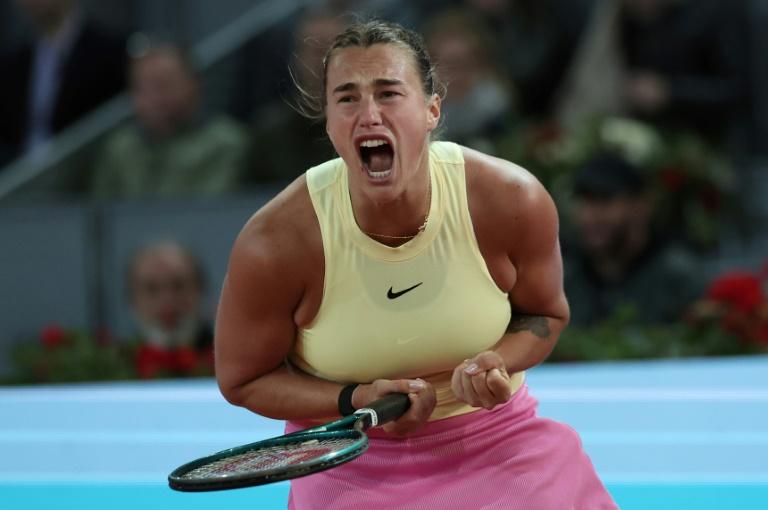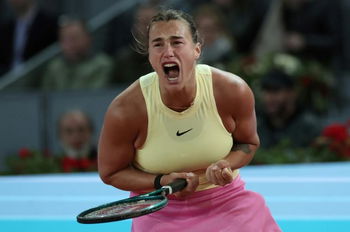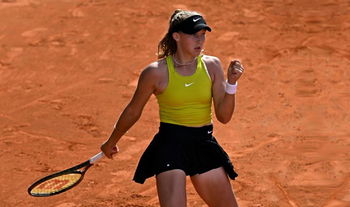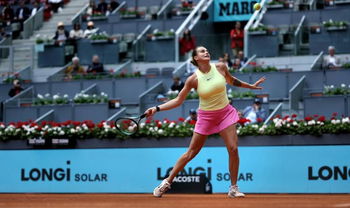For Sabalenka, tennis "could act as a treatment".

After several difficult weeks, Aryna Sabalenka is once again getting her head above water. The world no. 2, who won the title in Australia in January, has had a tough time of it. After a dazzling start to the season, the Belarusian had won just 4 matches (out of 8 played) since Melbourne. Madrid gave her a perfect boost with five straight wins to reach the final.
As she faces Iga Swiatek in the final (this Saturday, not before 6.30pm), her coach, Anton Dubrov, spoke to L'Equipe. He explains that his protégée has struggled to regain her grit following her Australian title: "It's a very common thing. It's not easy to return to competition after winning major titles. Especially after putting yourself under so much pressure. She's kind of lost that hunger for sport, that desire not to win a title, but to fight, to find out how to be better in training. [...] To grow as a champion, you always have to try to improve. In tennis, the mental and the physical are linked. And there was no connection. It's much better this week, but just because she's in the final doesn't mean she's out of the woods."
Asked about his player's journey to the final, Dubrov explains that her ability to get through difficult matches without necessarily playing her best tennis is something very positive for her confidence: "It's impossible to play very well all the time. Everyone experiences difficulties during the course of a season. But I think the difference between the champion and the good player is that the champion is able to get by without playing his best tennis. And that's what happened with Aryna. For example, she didn't necessarily play better than Montgomery (win 6-1, 6-7, 6-4 in the 3rd round) but she did what she had to do to go and get the match."
The 28-year-old coach also touched on the tragedy that struck the world number 2 in March. A few days before her Miami debut, the champion's ex-partner died suddenly. On this subject, he explains that tennis can sometimes act as a cure: "It wasn't easy because she went through something very hard. [...] The idea was to try to put that aside and concentrate on tennis, which could act as a treatment. When you go out on the court and you know what to do, even if you're frustrated, angry, it can give you a sense of healing. Being on the court was like medicine. Being in motion heals. No matter what you're going through in life, the idea is to do simple things, to get moving. Hike, bike, swim. Body and mind are always connected. On the staff, we try to support her and do our best to have the best approach with her, so that she's focused on what she has to do. She's not 100% yet. But she's already doing much better."
Finally, her coach also spoke about the upcoming final: "It was a great final (in 2023). I remember the sound of the ball, their movements, the way they built up their points. It was one of the best matches Aryna ever played. It was a bit of a turning point for her on clay. But that was twelve months ago, you have to try and forget that match, they've played each other several times since then (only once actually, at the end-of-year Masters for a 6-3, 6-2 Swiatek victory)."









 Miami
Miami 






